#Procrastination
Text
i'm seeing these posts so i'm gonna do it just for fun (knowing i'll get five notes at most), but writer's version:
100 notes and i'll try to post regularly on instagram.
200 notes and i'll make a routine to write daily.
300 notes and i'll start to exercise, drink more water, eat fruit and study more.
500 notes and i'll FINISH WIPS (works in progress).
1k notes and i'll EDIT MY BOOK.
2k notes and i'll propose marriage to my best friend.
5k notes and i'll go to mexico to see a boy (please don't) (i'll never get 5k (i hope)).
#if this gets x notes#if this gets 100 notes#if this gets more than 10 notes i'm dying#not to mention 1k#writer#writing#writers on tumblr#writing community#books#fix my life#health#health and wellness#resolutions#motivation#inspiration#motivate me#inspire me#procrastination#this is going to be fun
615 notes
·
View notes
Text

#writblr#writers on tumblr#writing community#writers of tumblr#writers on ao3#writerscommunity#writing#procrastination#writer#writers#writing stuff#writers problems#writing problems#writing meme#writing memes#queue
402 notes
·
View notes
Text

Spent 20 minutes editing the Casino Royale poker scene to be chutes and ladders instead of finishing my English homework.
3K notes
·
View notes
Text
How to Stop Procrastinating by Managing Your Emotions
Procrastination happens when we delay doing things, and it's often connected to our emotions. Feelings like being afraid to fail, feeling worried or stressed, getting bored, or lacking motivation can all contribute to procrastination. To stop procrastinating and get more things done, it's important to learn how to handle our emotions better.
Boredom:
Break the task into smaller, more engaging sub-tasks.
Find ways to make the task more interesting or challenging.
Set a timer and work on the task for a specific amount of time, followed by a short break doing something enjoyable.
Feeling Overwhelmed:
Prioritize tasks and focus on one thing at a time.
Break the task into smaller, more manageable steps.
Delegate some parts of the task if possible or seek help from others.
Use tools like to-do lists or task management apps to stay organized.
Anxiety:
Practice deep breathing or mindfulness techniques to calm yourself.
Challenge negative thoughts and replace them with more positive and realistic ones.
Start with the easier or less intimidating aspects of the task to build momentum.
Set realistic expectations and remind yourself that it's okay to make mistakes.
Self-Doubt:
Focus on past accomplishments and successes to boost your confidence.
Seek support or feedback from others to gain reassurance.
Remind yourself of your skills and capabilities to tackle the task.
Use positive affirmations to counteract negative self-talk.
Perfectionism:
Embrace the concept of "good enough" rather than seeking perfection.
Set realistic and achievable goals for each task.
Recognize that mistakes and imperfections are part of the learning process and growth.
Indecisiveness:
Break decisions into smaller steps and make one small decision at a time.
Set a time limit for making decisions to avoid overthinking.
Trust your instincts and make the best decision you can with the information available.
Apathy or Lack of Interest:
Find aspects of the task that align with your values or long-term goals.
Break the task into smaller, more manageable parts and focus on completing one at a time.
Reward yourself for completing the task to make it more appealing.
Stress or Burnout:
Practice stress-reduction techniques such as meditation, exercise, or spending time in nature.
Break tasks into smaller steps to reduce the feeling of overwhelm.
Prioritize self-care and take breaks to avoid burnout.
Feeling Uninspired or Creatively Blocked:
Engage in activities that stimulate creativity, such as brainstorming, mind mapping, or seeking inspiration from others' work.
Start with a simple and basic version of the task to get the creative juices flowing.
Collaborate with others or seek feedback to gain new perspectives.
Fear of Success:
Identify and challenge the negative beliefs or fears that may be holding you back.
Visualize the positive outcomes of completing the task successfully.
Focus on the benefits and personal growth that come with success.
Impatience:
Break long-term goals into smaller milestones to track progress.
Practice mindfulness to stay present and patient throughout the process.
Remind yourself that progress takes time and effort.
Lack of Confidence:
Celebrate your past accomplishments to boost your confidence.
Seek support and encouragement from friends, family, or mentors.
Focus on building specific skills related to the task to increase confidence.
Avoiding Discomfort:
Acknowledge that discomfort is a natural part of growth and improvement.
Break tasks into smaller steps and tackle the more challenging aspects gradually.
Remind yourself of the long-term benefits of facing discomfort.
Overestimating Future Motivation:
Practice discipline and commit to starting tasks even when motivation is low.
Set specific deadlines for tasks to create a sense of urgency.
Establish a routine that includes regular work on the task to build consistency.
#discipline#motivationalquotes#motivateyourself#get motivated#organization#procrastination#emotional intelligence#self improvement#selfimprovement#self love#self development#personal improvement#personal growth#personal development#level up journey#success mindset#positive mindset#business mindset#goalsetting#life goals
8K notes
·
View notes
Text



characters for some far-off possible future thing sort of developed from designs in the shortbox comic but different. magic knight ppl tasked with protecting a mining city that is in the process of excavating the ancient underground hell-space of some dead god idk. fighting demons & all that. will come up with more details if anyone wants that
#knight is just my generic pretty man face with a medieval haircut#characters#doodles#for later#PROCRASTINATION
4K notes
·
View notes
Text
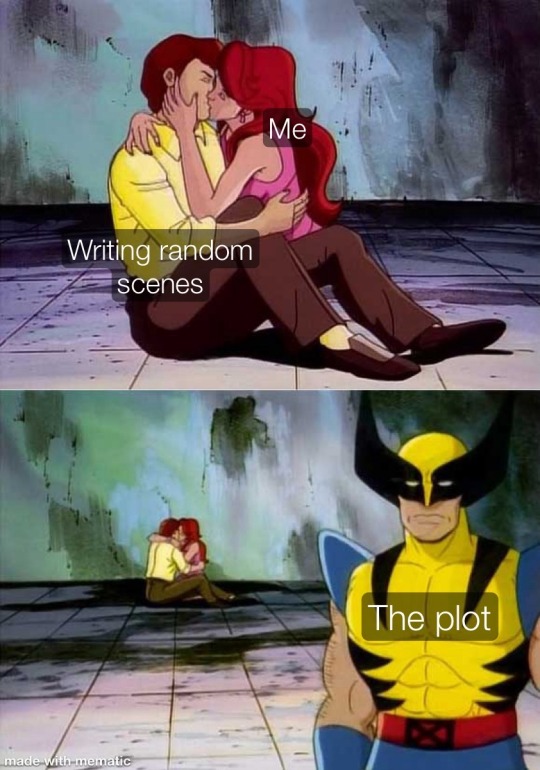
WHO NEEDS MIDDLE BITS WHEN YOU CAN HAVE ✨ 𝒔 𝒄 𝒆 𝒏 𝒆 𝒔 ✨
#destination procrastination station#writing memes#writing humor#writing#writeblr#my writing#fantasy#fantasy author#romantasy#ya fantasy#writerscommunity#ya romance#novelist#writers#writer#writers on tumblr#novelist memes#novel#procrastination#wip#current wip#work in progress#feral writing#writing blog#meme blog#author#ya fantasy author#authors#cat fayssoux#writers of tumblr
1K notes
·
View notes
Text
﹥*:ꔫ:*+゚procrastination, begone!﹥*:ꔫ:*+゚

identify your triggers
what causes you to procrastinate? is it fear of failure, perfectionism, boredom, or overwhelm? recognize your triggers so you can address them head-on.
2. break it down
big tasks can feel overwhelming, leading to procrastination. break them down into smaller, manageable steps and tackle them one at a time. progress, no matter how small, is still progress!
3. set clear goals
define specific, achievable goals for yourself and set deadlines. having a clear target to work towards will keep you focused and motivated.
4. create a game plan
plan your day ahead of time and schedule dedicated blocks for tasks. set realistic timelines and hold yourself accountable to them.
5. eliminate distractions
identify distractions in your environment and take steps to minimize them. whether it's turning off notifications, finding a quiet workspace, or using website blockers, create a conducive environment for productivity.
6. use the pomodoro technique
break your work into intervals, typically 25 minutes of focused work followed by a 5 minute break. this technique can help increase focus and productivity while preventing burnout. (this really helps me personally!)
7. practice self-compassion
be kind to yourself when you slip up. we're all human, and occasional bouts of procrastination are normal. instead of dwelling on past procrastination, focus on what you can do right now to move forward.
8. find accountability
share your goals with a friend, family member, or coworker who can help keep you accountable. having someone to check in with can provide an extra boost of motivation.
9. reward yourself
celebrate your accomplishments, no matter how small. treat yourself to something you enjoy after completing a task or reaching a milestone. positive reinforcement can help reinforce productive habits.
#it girl#that girl#self care#self improvement#procrastination#i need to stop procrastinating#accountability#work life balance#self compassion#pomodoro#study inspiration#goals#motivation#life goals
1K notes
·
View notes
Text
Fanfic Writer Emoji Ask
😅 What's a story or scene you've created that you're a smidge embarrassed exists?
🥺 Is there a certain type of moment or common interaction between your characters that never fails to put you in your feels?
🤡 What's a line, scene, or exchange you've written that made you laugh?
😈 Has there been a point in a story where you did something just to be playfully mean to your readers?
✍ Do you have a beta reader?
🛒 What are some common things you incorporate in your fics? Themes, feels, scenes, imagery, etc.
🎢 Which of your fics would you call your wildest ride?
✨ Give you and your writing a compliment. Go on now. You know you deserve it. 😉
💋 First kiss fics. Love em or hate em?
🎶 Do you listen to music while you write? What song have you been playing on loop lately?
🛠What tools/programs/apps do you use to write?
⛔ Do you have a fic you started, but scrapped?
🙋♀️ Do any irl people know you write fanfic?
🍦 What's the sweetest fic you've created so far?
🍷 Do you drink and write?
🍆 Do you write the spicy stuffs? If so, what's your most popular nsfw fic?
🌞 Do you have a preferred time of day to write?
💖 What made you start writing?
💌 How do you feel about comments and feedback?
❌ What's a trope you will never write?
💲 Would you ever open commissions?
🧐 Do you spend much time researching for your stories?
🏆 What's your most popular fic?
🎃 Do you write fics for certain holidays? Which is your favorite holiday inspired fic?
🎯 Have any of your readers accurately guessed major plot points? Care to share which?
🎨 How do you feel about fan art of your stories?
📈 How many fics do you have?
🦅 Do you outline fics or fly by the seat of your pants?
👀 Tell me about an up and coming wip please!
🤗 What advice would you give to new fanfic writers that are just getting started?
💞 Who's your comfort character?
🧠 Pick a character, and I'll tell you my favorite headcanon for them.
🤩 Who is your favorite character to write?
🤲 Would you please share a snippet of a wip?
😬 Which of your fics would you be most horrified for friends, family, or coworkers to stumble upon?
🎉 What leads you to consider a fic a success?
✅ What's something that appears in your fics over and over and over again, even if you don't mean to?
📚 Would you ever want to turn writing into a career?
⌛ How long does it take you to write a fic, or a chapter?
🤯 What's a genre you struggle with as a writer (ex. romance, action, etc.)?
💔 Is there a fic of yours that broke your heart?
💥 How do you feel about criticism?
🤭 Do you have a favorite tag to use when posting your works?
🥰 How do you feel about reader interaction? Are you open to receiving questions about your fics?
#this is what happens when I should be writing#fanfic writer ask#fanfic ask#writer ask game#ask game#fanfiction#ao3#fanfic writer emoji ask game#procrastination
24K notes
·
View notes
Text

self portrait
2K notes
·
View notes
Text
Me, before the holiday break: Look at all this free time ahead of me! I can do so many things, get so much done!
Me, now: Well. Time has sure passed.
1K notes
·
View notes
Text
I'm still thinking about hbomberguy's Plagiarism video and I think there's still going to be a lot of student plagiarism because...writing based on synthesizing info from multiple sources is tough, and rephrasing someone's entire sentence structure FEELS like "writing in your own words" enough that it's not obvious to beginners how blatant it is.
if you struggle with writing research papers, often procrastinate and then scramble to assemble a paper from a single source, you are setting yourself up for likely plagiarism. here are some real tips for avoiding this and getting better at academic writing. these are a short version of sonke ahrens's great book on the Zettelkasten method, How to Take Smart Notes (which i recommend reading, but it is one of those Books That Could Have Been a Blog Post, as If Books Could Kill would say, and the full Zettelkasten method is probably overkill for most people).
1. Take notes on what the texts make you think while you read, with a pen and paper, in your own words. These are not summary notes, but "this section reminds me of that one episode of the simpsons" or "i don't think it's true that willpower is finite..." these are your own thoughts and feelings
2. When you're completely done with an article or book chapter, start a note file on the computer with the proper citation at the top and write a 1-2 sentence summary of the content of what you just read. Without looking at the text. Yes, this is hard!!
3. Go through your personal notes from step 1 and see if anything there is a Big General Idea or theme. It may take reading a few articles or stepping away/thinking in the shower before these emerge. "Hmm I'm noticing that a lot of societies have similar rituals about food and gratefulness, I wonder if it's a superstitious way to ensure future abundance?" Elaborate on that in a separate note.
4. You can weave the notes from Step 3 into a thesis statement with supporting arguments properly summarized and supported with info from Step 1.
#hbomberguy#plagiarism#writing advice#zettelkasten#sonke ahrens#research papers#writing help#procrastination
1K notes
·
View notes
Text



here's the reason you procrastinate
based on Fuschia Sirois' research
everyone procrastinate at some point. research suggests that almost 1 in 4 people procrastinate on a fairly regular basis, and the rates are even higher among college and university students ( 50% of them procrastinate regularly and about 85-90% do so occasionally ).
because procrastination is so common we tend not to put too much thought into it, in the end what is the problem? it's just delay.
well, it's not. actually procrastination is harmful delay ( so defined by the researchers ); it is a form of delay which is:
voluntary
unnecessary
involves important tasks which you intended to do
people often underestimate the consequences of procrastination and how debilitating and harmful it can be. if you delay dealing with ( for example ) your academic works, of course you can expect some negative results in that area, but what about the collateral consequences of it?
research has shown that people who have problems with procrastination have low physical and mental health and practice less healthy behaviors. they deal with depression, stress and anxiety.
just think about the enormous amount of stress that procrastination brings: first of all, constantly chasing deadlines. deadlines can nag anyone, even those who don't struggle with delaying, but then it ends, the job is turned in, and everything goes back to normal. for procastinators this is not the case, they will keep putting off important things and will constantly end up with an imminent deadline.
so, if it's so harmful for your health, why do people do it? some people think it's about laziness or poor time managment, but actually:
laziness isn't procrastination. if you're lazy you don't have the energy to do anything, instead procrastinators are always busy with a thousand non-essential tasks to do, in fact they avoid doing one specific task, not every task ( for example if i need to study, but i'm procrastinating it, i end up cleaning my room )
poor time managment it's actually a symptom of procrastination, not a cause.
from a psychological perspective the origins of procrastination are rooted in negative emotions and the urge to cope with them through avoidance. so actually procrastination is about poor mood managment, not poor time managment.
procrastination starts when we have a task that's unpleasant, but we have to do it. and we use procrastination then as a way to get relief from those negative emotions associated with the task, so basically it's not even about avoiding the task, but it's about avoid the negative emotions that we associate with the task.
we need to avoid stress and aversive feeling that come with the task, especially when we don't feel like we can manage those negative emotions at the moment. so we take the task, we put it aside, and it's instant relief. it's fast, it's easy and it works for a little while, then that sense of shame, guilt and self-blame starts to kick in.
so why do we keep procrastinating? for that sense of relief, because that made us feel rewarded and we tend to repeat behaviors that rewarded us. this can easily lead to a cycle of procrastination.
however, the negative thoughts that we have ( "why didn't i start earlier?", "i'm letting myself down" etc. ) don't actually make us take action. they just add layers of layers on pre-existing negativity.
so how do you get out of the procastination cycle?
go back to valuing your task, if it's so important that you do it, remind yourself why you are doing it
remember that we tend to overestimate the discomfort that a given challenge will bring us. probably your task isn't even that time-consuming, unpleasant and frustrating
be compassionate and and forgive yourself, it's an effective strategy to reduce the negative emotions associated with the task. you are not the first nor the last person to procrastinate, we are all human and we all make mistakes. research has shown that doing so reduces the risk of procastination.
hope you enjoyed this little explanation, here's my sources: https://youtu.be/xTEPNxx0MsA
#academia#college#education#note taking#school#student#study aesthetic#study blog#study inspiration#study motivation#study notes#study tips#studyblr#studyinspo#studyspo#chaotic academia#light academia#academic validation#dark academia#uni life#university life#university#motivation#procrastination#why you procrastinate
507 notes
·
View notes
Text
15 Productivity Hacks 💻💭📝💡
Use the Pomodoro Method. Work in focused intervals (typically 25 minutes) followed by a short break. This helps you maintain high levels of focus and gives regular breaks to rest.
If a something takes less than two minutes, do it immediately.
Schedule specific blocks of time for specific activities. This helps in dedicating focus to one task at a time.
Group similar tasks together and tackle them in one go. For example, respond to all emails at once rather than sporadically throughout the day.
Contrary to popular belief, multitasking can reduce productivity. Focus on one task at a time for better efficiency.
Use apps and tools like Trello, Asana, or Notion to manage tasks and projects.
Use the Eisenhower Box or the ABCD method to categorize tasks based on their urgency and importance.
Keep your workspace tidy. A clean workspace can enhance focus and reduce distractions.
Even if one doesn’t exist, setting a deadline can create a sense of urgency.
Large tasks can be overwhelming. Break them into smaller steps to make them more manageable.
Aim for excellence, not perfection. Sometimes waiting for something to be perfect can lead to procrastination.
If someone else can do a task, delegate it. This allows you to focus on tasks that only you can do.
Working for long hours without a break can lead to burnout. Short, regular breaks can help maintain high levels of focus.
Use apps to play background music/noise that enhances concentration or block all notifications to prevent you from checking your phone.
At the end of the week, review what you’ve accomplished and what needs to be adjusted for the coming days.
#100 days of productivity#productivityhacks#personal improvement#personal development#goalsetting#goals#stay focused#study tips#self help#self improvement#procrastination#just do it#life advice#advice#glow up tips#that girl#motivation#discipline
2K notes
·
View notes
Text
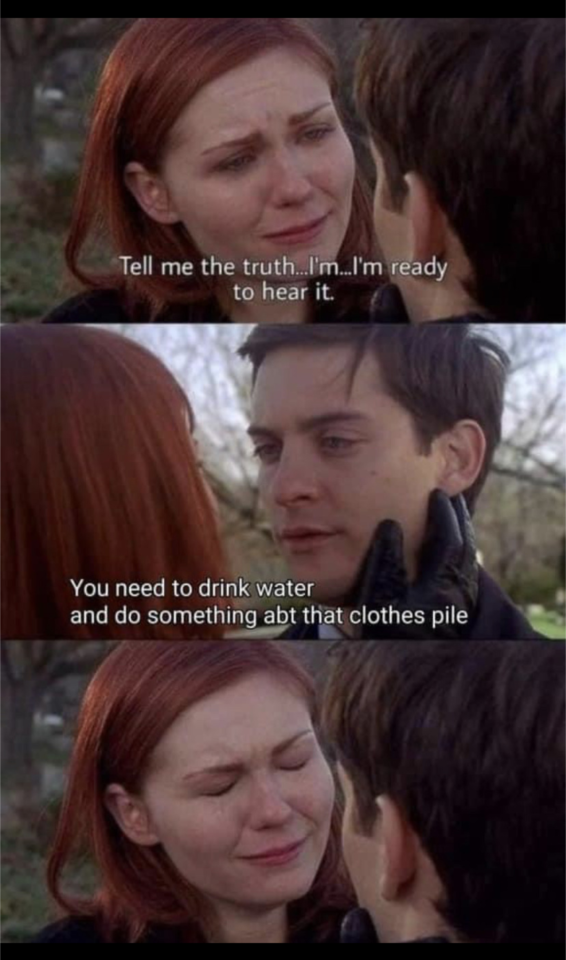
#adhd memes#neurodivergence#adult adhd#neurodiversity#neurodiversesquad#adhd things#adhd mood#neurodivergent#adhd#laundry#executive dysfunction#procrastination#relatable memes
1K notes
·
View notes
Text

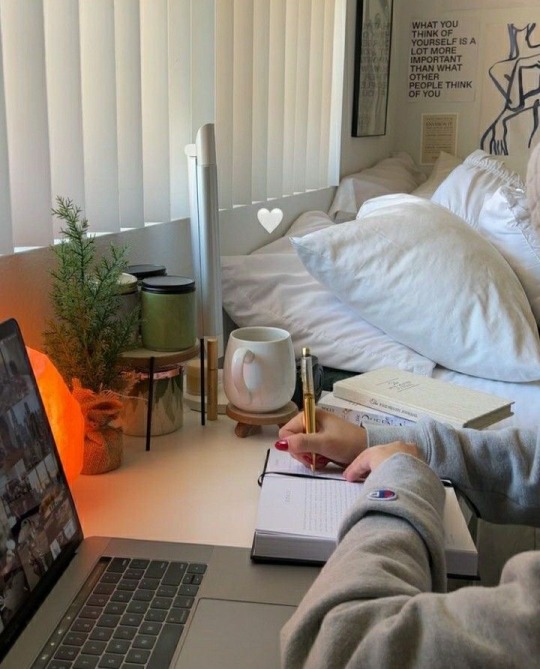


How to Handle Procrastination
Source: James Clear.
The Two Minute Rule by David Allen
- best for small tasks such as chores and smaller work tasks (sending emails, sharing feedback, etc)
- Small wins mindset
1. The two-minute rule aims to banish procrastination and help people accomplish small tasks.
2. Here’s what the rule says: if you can do an action in two minutes or less, tackle it at the moment — and don’t delay. This has the potential to deliver long-term benefits.
Temptation Bundling
- habit stacking method
1. Temptation bundling is a concept that came out of behavioral economics research performed by Katy Milkman at The University of Pennsylvania. Simply put, the strategy suggests that you bundle a behavior that is good for you in the long-run with a behavior that feels good in the short-run.
2. Only do (what you love) while doing (what you’re procrastinating).
Eg: only do (pedicures) while (answering work emails).
Only (watch your fave tv show) while (ironing your clothes).
The Ivy Lee Method
1. At the end of each work day, write down the six most important things you need to accomplish tomorrow. Do not write down more than six tasks.
2. Prioritize those six items in order of their true importance.
3. When you arrive tomorrow, concentrate only on the first task. Work until the first task is finished before moving on to the second task.
4. Approach the rest of your list in the same fashion. At the end of the day, move any unfinished items to a new list of six tasks for the following day.
5. Repeat this process every working day
#c suite#powerful woman#ceo aesthetic#personal growth#that girl#productivity#strong women#getting your life together#feminine energy#balance#currently procrastinating#procrastinating#procrastination#avoiding things#avoiding#work calls#work
3K notes
·
View notes
Text
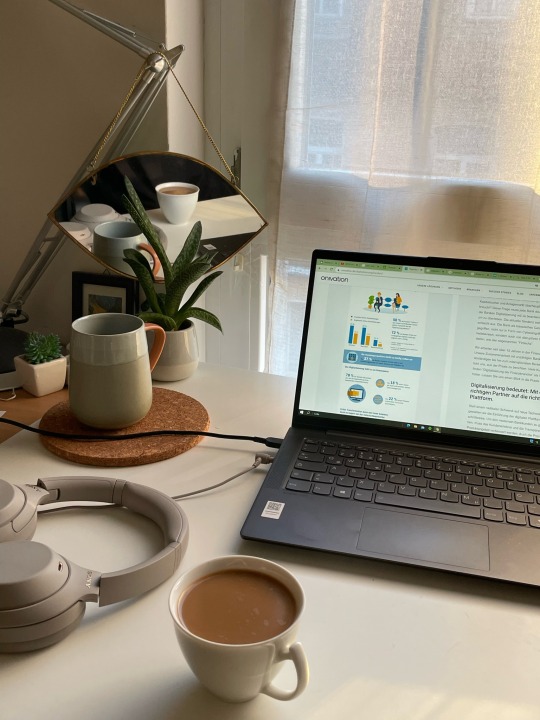
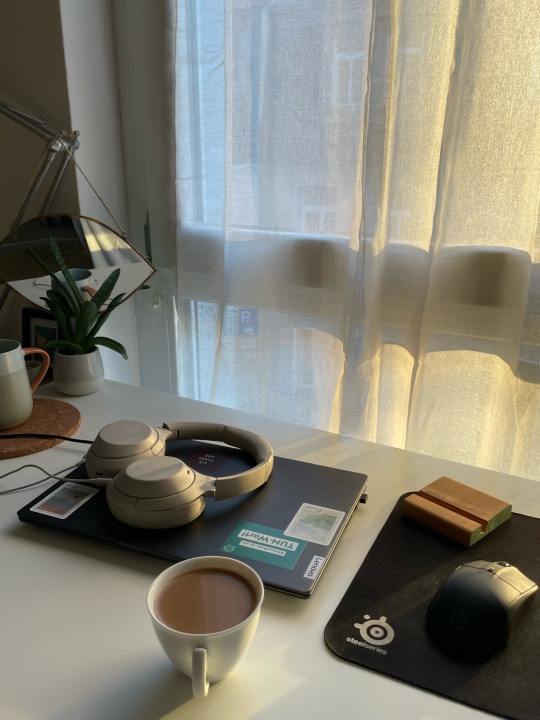
[051222] I have absolutely no motivation AT ALL…. How am I supposed to do ANYTHING like this !?
#study motivation#studyblr#studyspo#studyspiration#study inspiration#productivity#studying#study blog#mine#motivating myself#study notes#being productive#procrastination#studying is hard#photography#study space#studyabroad#coffee#women in stem#study tips#academia#academia aesthetic#studygram#study aesthetic#love yourself#take care of your mental health#my photography#warm academia
5K notes
·
View notes